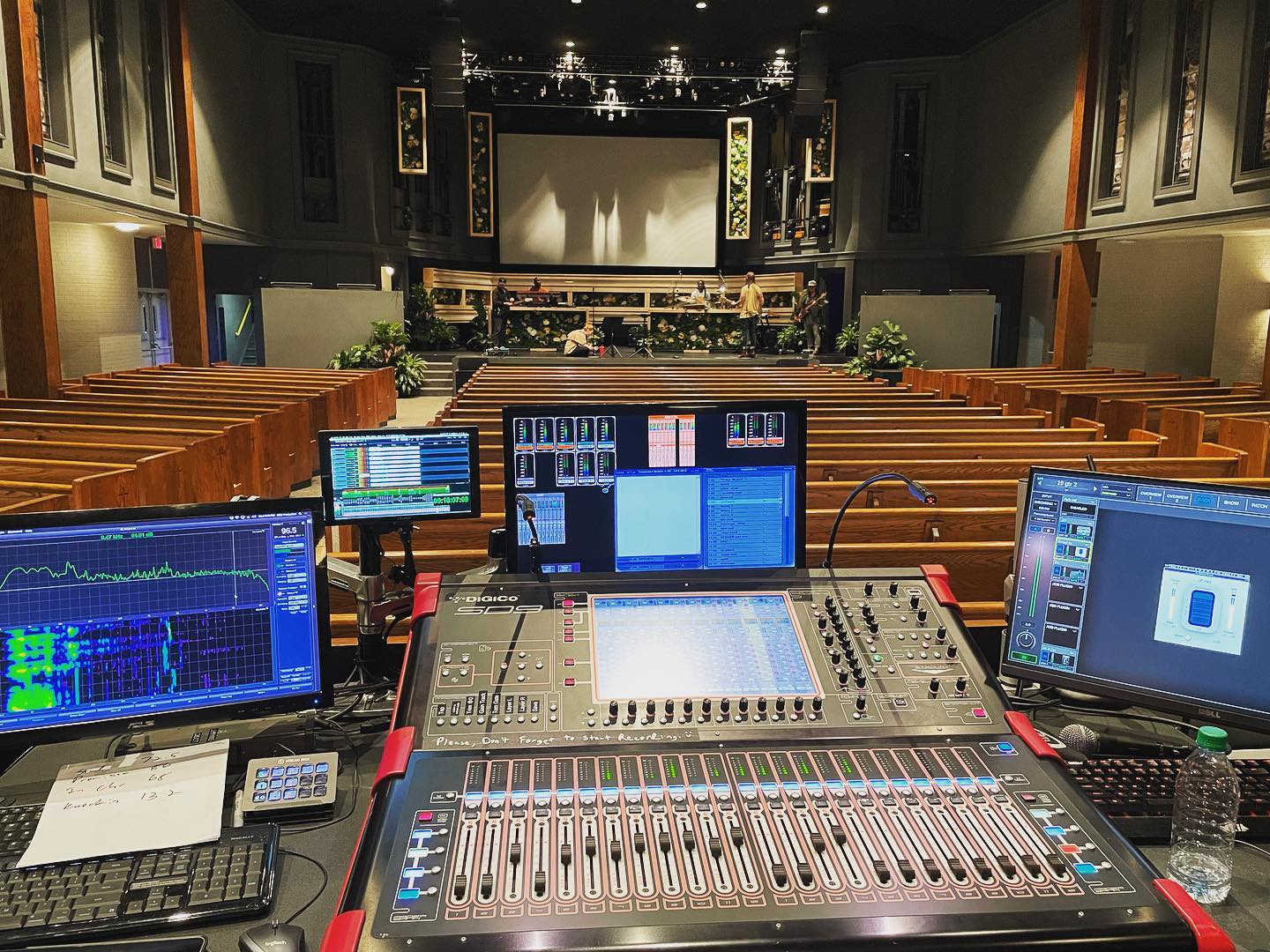By David Stagl
GoingTo11.com
Soundcheck… Sometimes I want to get every church together to get some things straight about soundchecks. If you’re not doing a soundcheck regularly, you need to.
Seriously. You need to do a soundcheck. I went through a season of visiting churches where that was almost always my first big piece of advice.
For those of you who are doing them, let’s talk a little about making them more effective and potentially less painful.
I suppose this is a good problem to have, but I run into a lot of churches these days who actually soundcheck too much. They’ll do a full soundcheck at their midweek rehearsal and then do another full soundcheck on Sunday morning. And these are not quick affairs, either. They get pretty detailed going one instrument at a time.
Now, this is my opinion, but you probably only need to do ONE full soundcheck per week. There are cases for doing it all the time, but let’s talk about what I see most.
Most churches I work with these days are using digital consoles. They’re saving show files or scenes from Sundays and mid-week rehearsals and loading them up on Sunday morning. Their instrumentation and players are also all the same between rehearsal and Sunday morning.
You don’t really need to re-soundcheck in these cases. You only need to LINE CHECK and maybe have the band run a little bit of a song to check their monitors.
What’s a line check?
It’s simple: A line check is when you check to make sure the line works, and there’s no unexpected noise or issues. Line checking in these Sunday morning situations can look something like this:
- Check each musician as they are plugging in and messing around with their instrument before rehearsals and run-throughs. You probably won’t even need to say anything here.
- If it sounds like their instrument, you’re done.
- If it’s noisy or crackles or distorts, fix it.
If you miss the opportunity when a musician is plugging in, ask them to play a little bit before rehearsal starts. Again, if it sounds like their instrument after 5 seconds or less of playing, you’re done. You don’t have to make this complicated.
Here’s my general rule for line checking or sound checking.
- Line Check if something gets unplugged or powered down or the sun rises or falls.
- If anything changes, Sound Check what changed.
Now, how about some practical examples:
– We had a Saturday night service. Now it’s Sunday morning with the same band and instrumentation: Line Check
– We had a Saturday night service. We had to change out one of the guitar players because someone’s kid got sick: Soundcheck the new guitarist. Line check everyone else.
– We have the same band as last week, but it’s a new engineer: Soundcheck
– We had a mid-week rehearsal and instrumentation and personnel on Sunday is the same: Line Check
– We had a mid-week rehearsal, and Joe decided to bring a different guitar on Sunday because he didn’t like the one he had at rehearsal: Sound check the new guitar.
Is this starting to make sense?
Now, I have one more tip. Whenever it’s a new day, I find it’s always helpful to have the band run at least one song before jumping into any full production rehearsals or services. It’ll help them blow the cobwebs off and re-adjust to their monitors.
Are your soundchecks running smooth? Are you getting hung up on things? What has been working for you? Please let us know.

